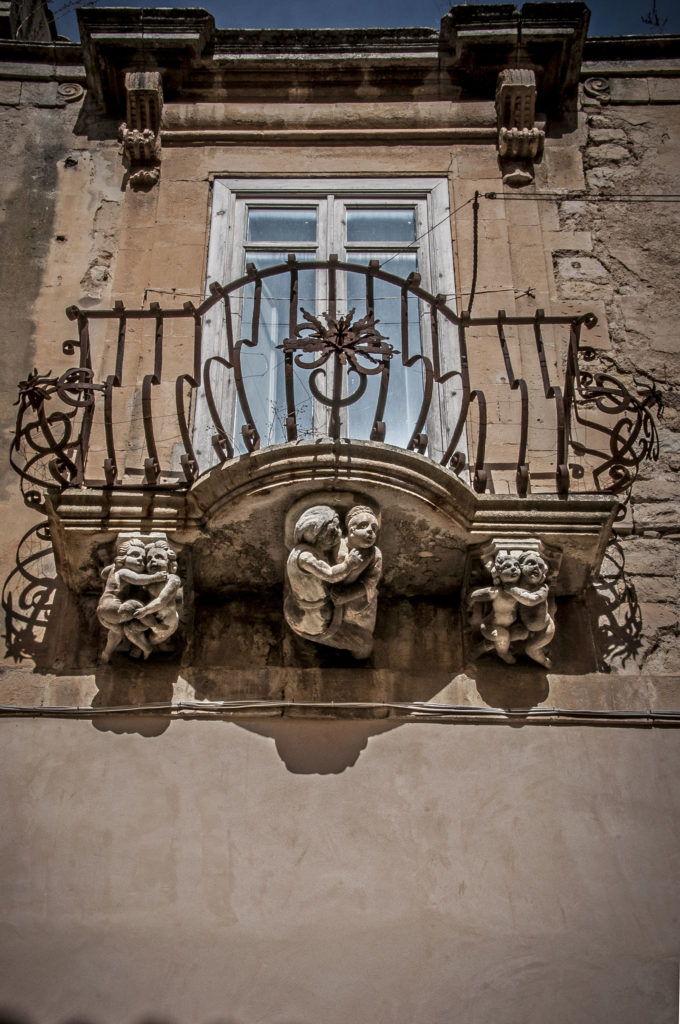 What makes Palazzo La Rocca so unique are its
large corbels
What makes Palazzo La Rocca so unique are its
large corbels
, below the balconies, three supporting each one. They tell their own story and amaze passers-by.
From Via Duomo the first balcony that we find is the balcony of the
Cherubini
(cherubs).
The second and third balconies are dedicated to music, where sculptures of a tenor mandola player and a flute player remind us that at that time music, bel canto and feasts were an essential part of aristocratic life.
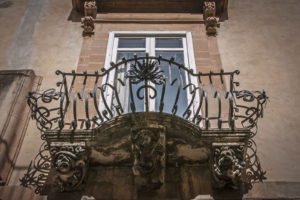
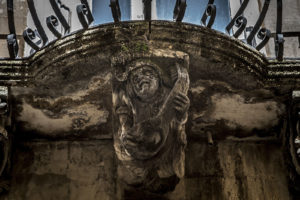
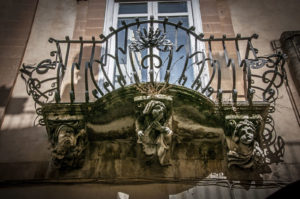
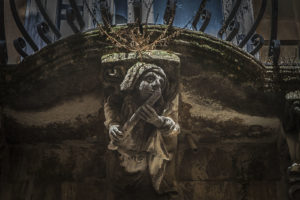
The fourth balcony portrays a tender moment between mother and son. Then follows the balcony above the entrance door decorated with a central shell and plant decorations in the side corbels.
The sixth is the balcony of the Amorini, where three pairs of cupids are linked in a tender embrace.
The seventh balcony has a sculpted
telamon
that seems to support the full weight of the balcony all by itself.
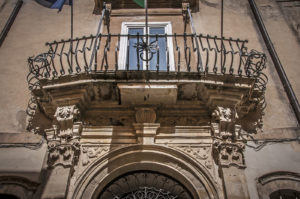
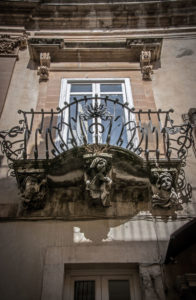
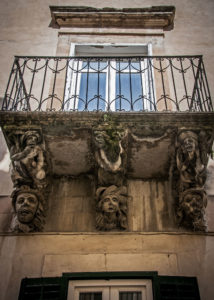
The final balcony is the balcony of the Cavaliere (knight). It is surrounded by several characters.
On the left is a masked man, perhaps one of his soldiers or bodyguards, and on the right is a figure with a malevolent smile, which represents cunning; above is a large moustached man with a thick head of hair and two porters.
What a sight! Walking down Via Capitano Bocchieri is like going to the theatre.